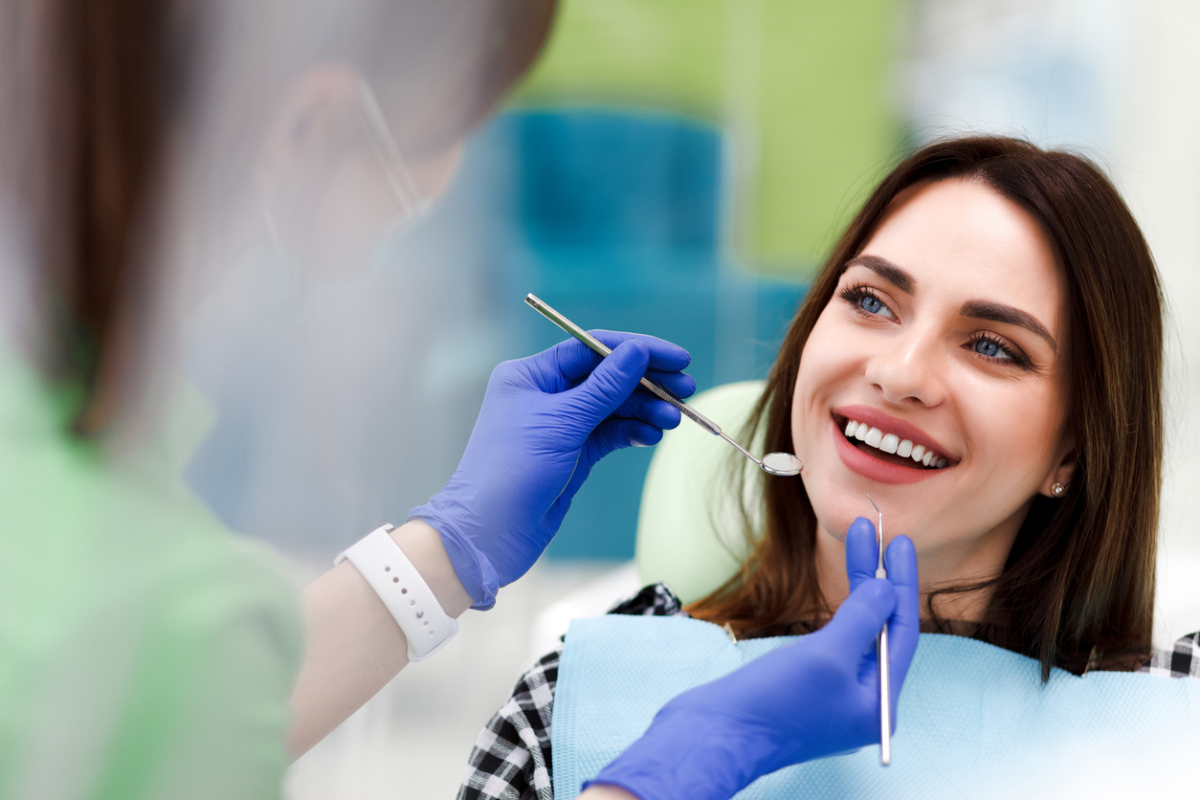We often hear that an effective oral hygiene routine is essential for healthy teeth. But what constitutes a good routine, and how often should you get professional dental cleanings? In this article, we address these questions.
How Often Should You Get Professional Dental Cleanings?
The general recommendation is to get professional dental cleanings twice a year. However, some patients may require more frequent cleanings, particularly if gum disease is present or their teeth are prone to cavities. Let us examine how professional dental cleanings can enhance your oral health in more detail.
Why Are Professional Dental Cleanings Important?
Even with a very efficient oral hygiene routine, plaque is likely to accumulate on your teeth over time, especially in areas of your mouth that are hard to reach with a toothbrush and floss. People with orthodontic issues such as crooked or crowded teeth may find it even more challenging to clean their teeth properly.
When plaque is not removed regularly, it hardens and turns into tartar—a sticky buildup that is impossible to remove with a toothbrush or flossing thread. Both plaque and tartar are acidic and filled with bacteria. Acid and bacteria destroy the enamel of your teeth, causing cavities.
In addition, constant presence of harmful bacteria on your teeth and gums can cause gum disease—a chronic inflammation and infection of the gum tissue. Gum disease can lead to gum recession and, if left untreated, may even result in tooth loss. Furthermore, gum disease is closely associated with various general health issues, including joint, heart, and lung problems.
During a dental cleaning, your doctor will use a variety of special professional instruments designed to effectively remove both plaque and tartar from your teeth and, if needed, from periodontal pockets (spaces between the gum tissue and the teeth).
Are There Other Procedures That Can Improve Your Oral Health?
We recommend opting for professional fluoride treatments that can be done after your cleanings. Fluoride is proven to remineralize the enamel of your teeth, making it stronger and more resilient to bacteria. In fact, fluoride treatments can even help reverse cavities in the very early stages.
How to Maintain the Results of a Professional Dental Cleaning?
Once all the plaque and tartar is removed from your teeth at your dental office, we recommend adhering to the following tips to maintain the results for as long as possible and to prevent further tartar buildup:
- Do not skip brushing your teeth twice a day and flossing every evening. For your evening routine, brush and floss before bed, especially if you’re not going to consume any food. Night is the perfect time for bacteria to proliferate, so leaving food residue in the mouth will encourage them to do so.
- Use a fluoride toothpaste to help fight bacteria in the mouth.
- Choose a toothbrush that cleans effectively but does not irritate your gums, as you need to brush thoroughly, not only the chewing surface of your teeth but also along the gum line.
- Floss your teeth on both sides, but be careful not to hurt the gums in the process. If flossing proves to be challenging, try special tools, such as floss threaders or interdental brushes.
- Add a water flosser as the first step in your routine to make subsequent brushing and traditional flossing even more effective.
Get a Dental Cleaning at Glendora Family Dentistry
Do not hesitate to schedule a professional dental cleaning and a fluoride treatment with an experienced dentist at Glendora Family Dentistry today. Remember that these preventive measures will help you maintain your oral health for years to come and avoid costly and more complicated treatments. We look forward to your visit.



